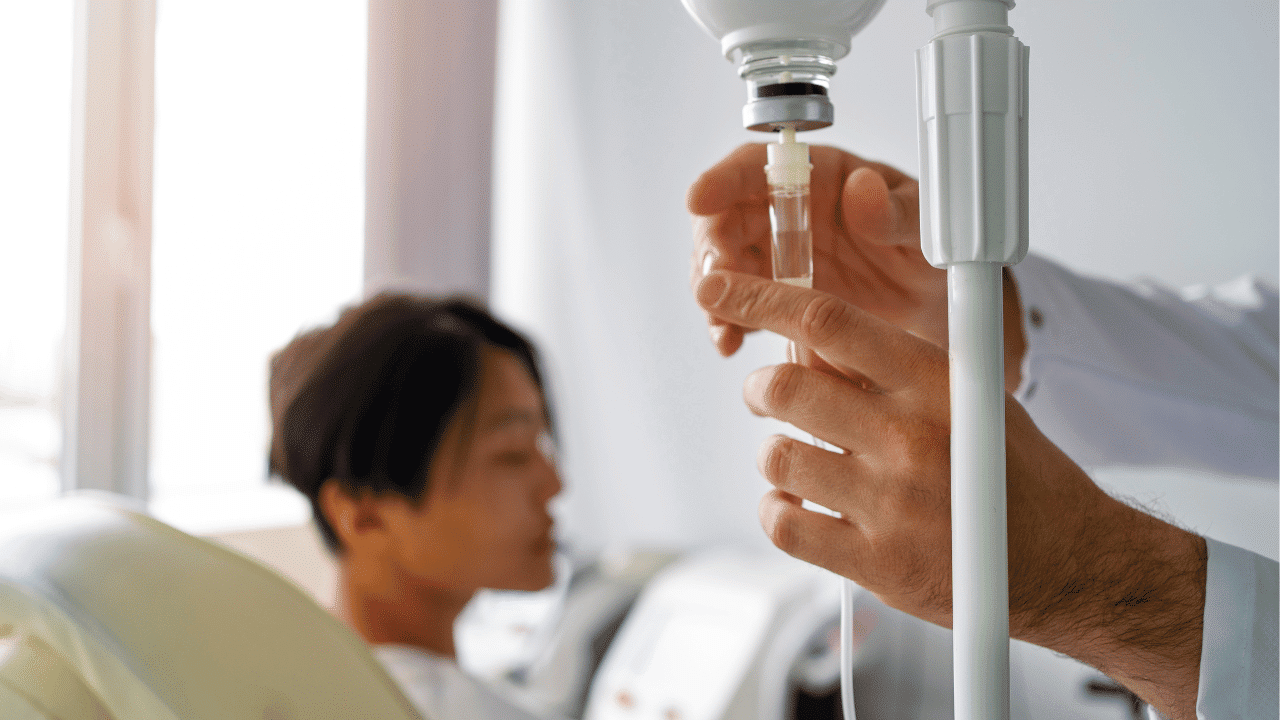Bali Belly symptoms, also known as traveler’s diarrhea, are among the most common health problems faced by tourists in Bali, usually triggered by exposure to unfamiliar bacteria or consuming contaminated food and water. While many cases are mild and pass within a few days, the condition can still interrupt travel plans and cause significant discomfort if not recognized and treated properly. Understanding the early warning signs—such as stomach cramps, nausea, fatigue, and frequent loose stools—can help travelers take timely action to ease discomfort and prevent the illness from worsening.
More importantly, knowing when to seek medical attention and how to adopt practical prevention strategies can make all the difference in protecting your health and ensuring your holiday remains enjoyable. When planning a trip to the tropical paradise of Bali, the last thing anyone wants to think about is getting sick. However, Traveler’s Diarrhea a.k.a. Bali Belly Symptoms, is a common ailment affecting tourists visiting Indonesia, particularly the island of Bali. Recognizing and managing the Bali Belly symptoms is crucial for ensuring a comfortable and enjoyable trip.
It is possible that you may experience Bali Belly when you have a trip to Bali and so understanding the causes, symptoms, prevention strategies, and treatment options is essential. In this comprehensive guide, we’ll explore everything you need to know about Bali Belly to help you stay healthy during your visit.
Common causes of Bali Belly
Bali Belly is primarily caused by consuming contaminated food or water. The primary sources of infection include bacterial, viral, and parasite. These pathogens can be present in undercooked meat, contaminated produce, and untreated water sources.

Bacterial infections
- Escherichia coli (E. coli): E. coli is a common bacteria found in the intestines of humans and animals. While many strains are harmless, some can cause severe diarrhea, particularly the Enterotoxigenic E. coli (ETEC) strain, which is a leading cause of traveler’s diarrhea.
- Campylobacter: Campylobacter is often found in raw or undercooked poultry, unpasteurized milk, and contaminated water. It can cause diarrhea, abdominal pain, and fever.
- Shigella: Shigella is transmitted through contaminated food or water and can cause severe diarrhea, fever, and stomach cramps.
- Salmonella: Salmonella is found in raw or undercooked eggs, poultry, and meat. It can cause diarrhea, fever, and abdominal cramps.
Viral infections
- Norovirus: Norovirus is highly contagious and can be transmitted through contaminated food, water, or surfaces. It causes acute gastroenteritis, with symptoms such as diarrhea, vomiting, and stomach pain.
- Rotavirus: Rotavirus is a common cause of diarrhea in children and can be transmitted through contaminated hands, objects, or food. Symptoms include severe diarrhea, fever, and vomiting.

Parasites
- Giardia: Giardia is a microscopic parasite found in contaminated water sources. It causes giardiasis, which can lead to diarrhea, gas, and stomach cramps.
- Cryptosporidium: Cryptosporidium is another waterborne parasite that causes diarrhea, stomach cramps, and nausea.
Early symptoms of Bali Belly

The Bali Belly symptoms typically appear suddenly and can be quite uncomfortable. Early symptoms include:
- Sudden onset of diarrhea: Watery, frequent stools are the most common and noticeable symptom. It is essential to stay hydrated and monitor for signs of dehydration, such as dark urine, dizziness, and dry mouth.
- Abdominal cramps and bloating: Intense cramping and bloating may accompany diarrhea, causing significant discomfort.
- Nausea and vomiting: Some people experience nausea and vomiting in addition to diarrhea. This can further contribute to dehydration and electrolyte imbalances, making it even more critical to replenish fluids and electrolytes.
- Loss of appetite: A decreased desire to eat is common during the early stages of Bali Belly. However, it is essential to consume easy-to-digest foods like bananas, rice, soup and toast (BRAT diet) to maintain energy levels and promote recovery.
Additional symptoms
As the illness progresses, some people may experience additional symptoms:
Dehydration
Signs of dehydration include dark urine, dizziness, and dry mouth. Persistent dehydration can lead to more severe complications, so it is crucial to monitor fluid intake and replace lost electrolytes.
Staying hydrated is essential for recovery. Aim to consume small sips of water, oral rehydration solutions, or sports drinks throughout the day.
Fever and chills
A mild to moderate fever and chills may indicate the body is fighting an infection. Over-the-counter medications like acetaminophen or ibuprofen can help reduce fever and alleviate discomfort.
Fatigue and weakness
The body’s energy levels may be depleted due to diarrhea and vomiting. Resting and consuming easy-to-digest foods can help speed up recovery.

Red Flag Symptoms – When to Worry
Most cases of Bali Belly are mild and can be managed with rest, hydration, and over-the-counter remedies. However, there are certain red flag symptoms that should never be ignored. These signs may indicate a more serious infection, severe dehydration, or another underlying condition that requires immediate medical attention. Understanding what to look out for can help you make the right decision about when to seek professional care and prevent complications.
Fever
A mild fever can sometimes accompany Bali Belly, but a high or persistent fever may signal a bacterial or parasitic infection that needs medical treatment. If your temperature remains elevated despite rest and hydration, it’s best to see a doctor to rule out more serious causes.
Diarrhea
While diarrhea is the most common symptom of Bali Belly, severe or prolonged diarrhea—especially lasting more than three days—can quickly lead to dehydration and nutrient loss. If your stools are extremely frequent, watery, or worsening despite treatment, medical attention is necessary.
Blood in Stool
The presence of blood in your stool is a serious warning sign. It may indicate an invasive bacterial infection, intestinal damage, or another condition requiring urgent medical evaluation. Do not attempt to self-treat this symptom; seek professional help immediately.
Persistent Vomiting
Occasional nausea and vomiting are common with traveler’s diarrhea, but vomiting that does not stop makes it nearly impossible to keep fluids down. This can cause rapid dehydration and electrolyte imbalance, which may require IV fluids or hospital care.
Abdominal Pain
Mild cramping is normal, but sharp, intense, or persistent abdominal pain can point to complications such as severe infection, inflammation, or even appendicitis. If pain worsens instead of improving, do not delay medical consultation.
Confusion or Fainting
Mental disorientation, dizziness, or fainting episodes are signs of severe dehydration or dangerously low blood pressure. These symptoms should never be ignored as they indicate your body is struggling to maintain essential functions. Immediate medical intervention is crucial in these situations.

When to See a Doctor
While many cases of Bali Belly improve on their own within a few days, certain groups of travelers should exercise extra caution. Children, the elderly, pregnant women, and individuals with weakened immune systems are more vulnerable to complications and should seek medical care earlier, even if their symptoms appear mild. Their bodies may not be able to fight off infections as effectively, and dehydration can develop much more quickly.
Another clear indicator that it’s time to see a doctor is the presence of dehydration signs—such as extreme thirst, dry mouth, dizziness, reduced urination, or dark-colored urine. If you or your travel companions are unable to keep fluids down due to persistent vomiting or severe diarrhea, professional care becomes urgent. In such cases, medical treatment, including oral rehydration solutions or intravenous fluids, may be required to restore balance and prevent further complications.
Duration of Bali Belly Symptoms
The typical duration of Bali Belly symptoms ranges from 3 to 7 days. Factors affecting recovery time include the individual’s immune system, age, and overall health. Those with pre-existing health conditions, young children, and the elderly may take longer to recover.
You can look for medical help if you feel overwhelmed with the symptoms or if symptoms persist for more than a week or if there are signs of severe dehydration, high fever, or bloody stools. All these indicate that you need medical help to administer medical treatment to help you recover.

Prevention strategies
Preventing Bali Belly involves taking precautions with food and water, as well as practicing good hygiene:
Staying safe from Bali Belly largely depends on practicing good food and water habits during your trip. Always drink bottled or properly boiled water—even for brushing your teeth—as tap water is unsafe for consumption, and be sure to check that bottles are sealed before use. When dining out, avoid buffets or street stalls with questionable hygiene, since food left uncovered or sitting out for long periods can easily become contaminated. Instead, opt for restaurants with high turnover and visible cleanliness, as paying a bit more for safer options is a small price to protect your health and ensure a worry-free holiday. Food and water safety tips:
- Consume only bottled or treated water. Avoid tap water, even when brushing your teeth.
- Pay attention to the hygiene of your drinking water
- Eat at reputable restaurants and avoid street food. Look for establishments with high cleanliness standards and proper food handling practices.
- Ensure food is thoroughly cooked and served hot. Pay attention to raw or undercooked meat, seafood, and eggs.
- Wash fruits and vegetables with bottled or treated water before consumption.
Hand hygiene
Washing hands regularly with soap and water or using hand sanitizer can help reduce the risk of infection. Ensure you wash your hands before eating, after using the bathroom, and after touching surfaces in public areas.
Pre-travel vaccinations and medications
Consult a healthcare provider to discuss necessary vaccinations and preventive medications. They may recommend vaccinations for Hepatitis A and typhoid fever.

Family Travel Tips
For families traveling with children, taking extra precautions is essential to reduce the risk of Bali Belly. Always use boiled or bottled water when preparing baby formula, as young children are particularly vulnerable to waterborne bacteria. Make it a habit to keep kids’ hands clean with soap or hand sanitizer, especially before meals and after playtime, since little ones often put their hands in their mouths.
It’s also important to avoid giving children snacks or drinks from vendors or stalls with poor hygiene, as their immune systems may not be strong enough to handle contamination. By practicing these simple steps, families can help ensure their trip to Bali remains safe, healthy, and enjoyable for everyone.
5 Treatment options
Prompt treatment can help alleviate symptoms and hasten recovery:
- Oral rehydration solutions: Restore lost fluids and electrolytes by consuming oral rehydration solutions, such as Pedialyte or WHO Oral Rehydration Salts. These are available in most pharmacies and can be easily prepared by dissolving the contents in bottled water.
- Rest and Diet: Giving your body enough rest is one of the most effective ways to recover from Bali Belly, as it allows your immune system to focus on fighting off the infection. During this time, stick to bland and easy-to-digest foods such as the BRAT diet (bananas, rice, applesauce, and toast), which help soothe the stomach and reduce irritation. Avoid spicy, oily, or dairy-heavy meals until your digestion fully returns to normal.
- Over-the-counter medications: Antidiarrheal medications provide short-term relief, but they should not be used for more than 48 hours without consulting a healthcare professional. Antiemetics can help alleviate nausea and vomiting.
- Antibiotics: The main cause of Bali Belly is bacterial infection. Thus antibiotic is the medicine that you need to combat this. Consult a doctor to get the recommendation on which antibiotic to use to cure your specific illness. It is essential to complete the full course of antibiotics, even if symptoms improve, to prevent antibiotic resistance and ensure the infection is fully treated.
- Natural remedies: Ginger and chamomile tea can help soothe the stomach and alleviate nausea. Peppermint oil capsules have also been shown to help reduce abdominal cramping and discomfort. Ensure you consult with a healthcare professional before starting any natural remedies, especially if you are pregnant, breastfeeding, or taking other medications.

Therapy Safety Warning
While IV therapy can be an effective solution for severe dehydration caused by Bali Belly, it should never be self-administered or performed by unqualified providers. This treatment involves inserting fluids directly into the bloodstream to restore hydration and electrolyte balance, which requires sterile equipment, accurate dosing, and professional supervision. For travelers in Bali, the safest choice is to rely on trusted medical services that specialize in this type of care.
Attempting IV therapy without proper training can lead to serious complications such as infection, vein damage, or fluid imbalance. To ensure safety and peace of mind, it’s best to seek help from professionals like Saline Bali, who provide reliable IV hydration therapy delivered by qualified medical staff. With professional care, you can recover more comfortably and continue enjoying your holiday without unnecessary risks.
Travel insurance and seeking medical help
It is always a good idea to have travel insurance that covers medical expenses when visiting a foreign country. Ensure your policy includes coverage for emergency evacuation, hospitalization, and repatriation. If you need medical assistance while in Bali, seek help from reputable clinics or hospitals that cater to tourists. Your hotel or travel insurance provider can often recommend suitable facilities.
Be prepared with essential information: In case of a medical emergency, have your insurance information, a list of any pre-existing medical conditions, and a list of medications you are currently taking readily available.
Recognizing and managing the Bali Belly symptoms is essential for ensuring a safe and enjoyable trip to Indonesia. Early intervention and proper management can help mitigate the impact of traveler’s diarrhea on your vacation. By adopting safe travel practices, such as adhering to food and water safety guidelines and maintaining good hand hygiene, you can reduce the risk of contracting Bali Belly.
In the event you do experience symptoms, knowing the available treatment options and seeking medical help when necessary can help you get back on your feet and continue enjoying your trip.
Remember, while Bali Belly is an unpleasant experience, it should not deter you from exploring the beautiful island of Bali and immersing yourself in its rich culture. With proper precautions and awareness, you can protect yourself and make the most of your Indonesian adventure.

Traveler Context & Awareness
When experiencing illness in Bali, it’s important to be aware that not all fevers or stomach issues are caused by Bali Belly. For example, Dengue Fever is another common illness among travelers and can sometimes be confused with food-related sickness. Unlike Bali Belly, which is characterized primarily by diarrhea, abdominal discomfort, and nausea, Dengue typically presents with high fever, severe headaches, joint or eye pain, and often a distinctive skin rash.
Recognizing the difference is crucial, as Dengue requires immediate medical attention and should never be treated as a simple digestive issue. By being mindful of overlapping symptoms, travelers can make informed decisions and seek the right care more quickly.
Another aspect to consider is the growing popularity of Mobile IV Drip services in Bali, which provide hydration therapy delivered directly to your hotel or villa. While this option is convenient for travelers too unwell to leave their accommodation, it is essential that IV therapy is administered only under the supervision of qualified medical professionals. Improper use can lead to complications such as infection or incorrect fluid balance.
For safe and reliable treatment, Saline Bali offers professional mobile IV services, ensuring that all procedures are handled with medical expertise and strict hygiene standards. With the support of trained staff, travelers can receive the hydration and recovery they need without compromising safety, allowing them to get back to enjoying their holiday with peace of mind.
Conclusion
Bali Belly is an unpleasant but common challenge many travelers face when visiting the Island of the Gods. Although it is usually mild and short-lived, the symptoms can still disrupt your holiday if not recognized and managed properly. By understanding the causes, early warning signs, and red flag symptoms, you’ll be better prepared to act quickly and prevent complications.
Practicing food and water safety, maintaining good hand hygiene, and seeking medical attention when necessary are key steps to keeping your trip worry-free. Families, children, elderly travelers, and those with weakened immune systems should be especially cautious, as they are more vulnerable to dehydration and other complications.
In the event that you do experience Bali Belly, a combination of rest, hydration, and safe treatment methods will usually speed up recovery. However, for more severe cases—such as persistent diarrhea, dehydration, or ongoing vomiting—professional care is essential. Services like Saline Bali offer trustworthy medical support, including safe IV hydration therapy and assistance in differentiating Bali Belly from other illnesses like Dengue Fever, ensuring you receive the right treatment when you need it most.
With the right awareness and precautions, Bali Belly doesn’t have to ruin your adventure. Stay informed, stay safe, and you’ll be free to fully enjoy the beauty, culture, and unforgettable experiences Bali has to offer.
Frequently Asked Question About Bali Belly Symptoms
What is Bali Belly?
Bali Belly, also known as traveler's diarrhea, is a common ailment affecting tourists visiting Indonesia, particularly the island of Bali. It is typically caused by consuming contaminated food or water and can lead to diarrhea, abdominal cramps, nausea, and vomiting.
How can I prevent Bali Belly?
To prevent Bali Belly, follow food and water safety guidelines, such as drinking only bottled or treated water, avoiding ice in drinks, eating at reputable restaurants, and ensuring food is thoroughly cooked.
How long does Bali Belly typically last?
The duration of Bali Belly symptoms usually ranges from 3 to 7 days.
Can Bali Belly be treated with over-the-counter medications?
Over-the-counter medications like antidiarrheals and antiemetics can provide short-term relief. However, they should not be used for more than 48 hours without consulting a healthcare professional.
Are antibiotics necessary for treating Bali Belly?
Considering that bacteria is the most common cause of Bali Belly, then antibiotic is the right option to use. It is essential to complete the full course of antibiotics, even if symptoms improve, to prevent antibiotic resistance and ensure the infection is fully treated.
When should I seek medical help for Bali Belly?
A: You can look for medical help anytime when you have Bali Belly. It is better to get it treated quicker rather than to wait longer for it to get worse.
Can Bali Belly be treated with over-the-counter medications?
Over-the-counter medications like antidiarrheals and antiemetics can provide short-term relief. However, they should not be used for more than 48 hours without consulting a healthcare professional.
Are antibiotics necessary for treating Bali Belly?
Considering that bacteria is the most common cause of Bali Belly, then antibiotic is the right option to use. It is essential to complete the full course of antibiotics, even if symptoms improve, to prevent antibiotic resistance and ensure the infection is fully treated.
Can natural remedies help with Bali Belly symptoms?
Natural remedies like ginger and chamomile tea can help soothe the stomach and alleviate nausea, while peppermint oil capsules may help reduce abdominal cramping. Consult a healthcare professional before starting any natural remedies, especially if you are pregnant, breastfeeding, or taking other medications.
How can I stay hydrated while dealing with Bali Belly?
Consume small sips of water or isotonic water throughout the day to stay hydrated. Monitor for signs of dehydration, such as dark urine, dizziness, and dry mouth, and increase fluid intake if necessary. You can also hydrate your bodies with saline liquid through the IV drip method. For this you need to contact a medical team and consult with them first.



